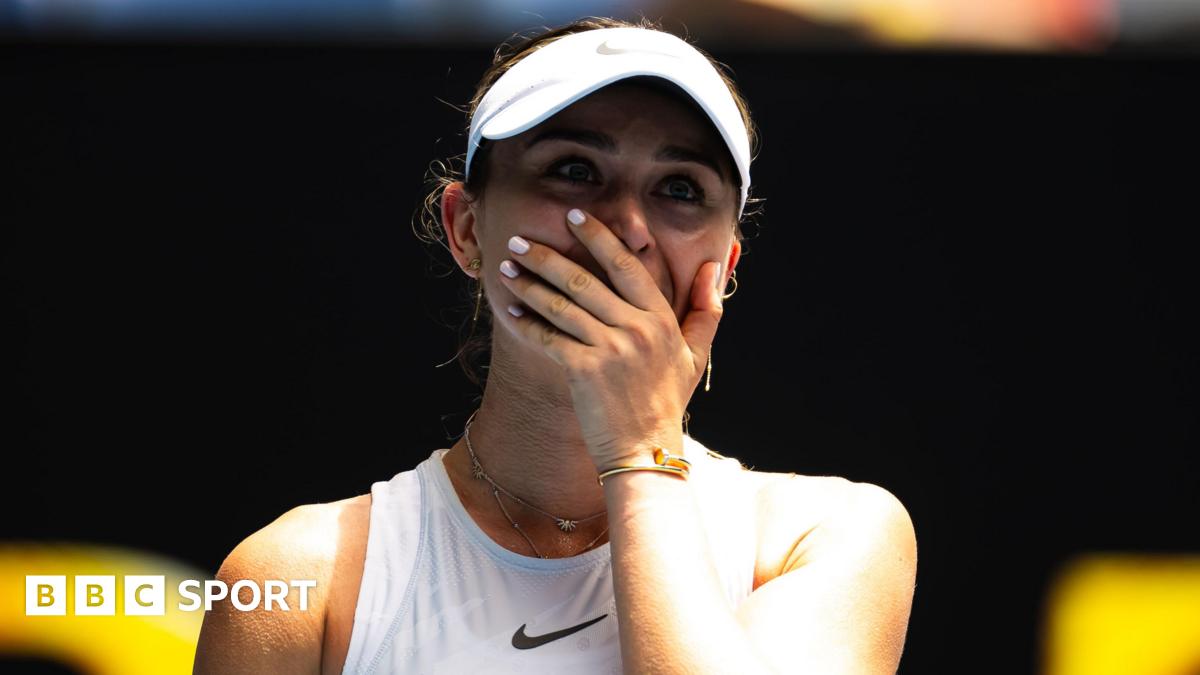ARTICLE AD BOX
Former captain Laura McAllister says women’s football in Wales could be taken to “stratospheric heights” if the national team can qualify for Euro 2025.
McAllister says Wales qualifying could prove transformative for women's sport in Wales.
Speaking to Iconic: The Rise of the Women in Red, a new BBC documentary presented by Wales’ record goal scorer Jess Fishlock, McAllister said she believes reaching a major tournament for the first time would have a similar impact to the Wales men's team reaching Euro 2016.
Wales face Slovakia in the play-off semi-finals on Friday, 25 October, with the winner going through to a final against either Republic of Ireland or Georgia later this year for a place in the finals in Switzerland next summer.
“I don’t think it’s too much to say that it’ll transform women’s football,” said McAllister, who was part of the squad when Wales played their first tournament qualifying games in 1993.
“Seeing Wales on the world stage, seeing our players line up for the anthem, our flag, these are things that you just can’t quite get your head around until they happen.
“It’ll be like 2016 all over again with the men’s side really.
“I think people won’t quite comprehend what an enormous platform this is until the tournament kicks off and then there will be no turning back.
“Once that genie is out of the bottle I think women’s football in Wales will go to stratospheric heights.”
The three-part series airing on BBC Radio Wales and BBC Sounds, tells the story of the women’s international team in Wales from their unofficial first matches in 1973 through to the modern day where they are on the brink of reaching the finals of a major tournament for the first time.
McAllister, along with her then Welsh international team-mates Michele Adams and Karen Jones, successfully lobbied the Football Association of Wales to form an official side in 1993.
Under Jarmo Matikainen they twice came close to a play-off place for Euro 2013 and the 2015 World Cup, before his successor Jayne Ludlow took the team to the brink of the 2019 World Cup and Euro 2022 play-offs, missing out on a place in the latter on away goals scored in a head-to-head record against Northern Ireland, despite having a vastly superior goal difference.
Wales were then beaten in the final moments of extra time in the play-off final by Switzerland for a place in the 2023 World Cup under Gemma Grainger in their last qualifying campaign.
Grainger says qualifying for a major finals would be a landmark moment not just for women's football in Wales, but for all female sport.
“If you look at the way in which women’s football is organised now in Uefa,” McAllister added, “we’re talking the strategy of it being a multi-billion-pound industry by 2030.
“I think this platform that we’d have by being in Switzerland next summer would be transformative really for how we run women and girls' football in Wales.
“Obviously, there’d be financial returns which are very welcome for an association like us but qualification would bring incredible attention, incredible dividends.
“We saw when England won in the last Euros just what they would be able to do to capitalise on that for school sport for girls and for club development.
“I think we’re savvy enough in Wales, we’ve got a strong enough strategy and a good enough leadership to make sure that we don’t waste that opportunity.
“For me, I think it’ll probably be the single most important historical thing to happen, maybe even in women’s sport, not just football, if we get there.”

 3 months ago
20
3 months ago
20








 English (US) ·
English (US) ·